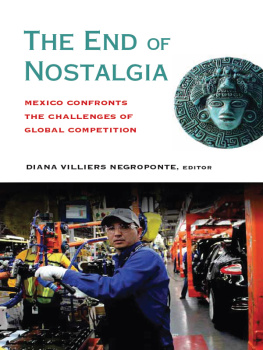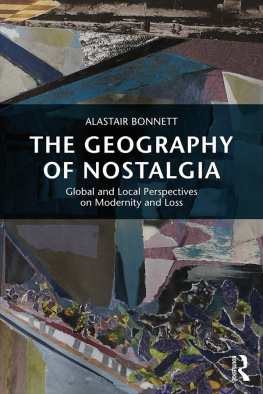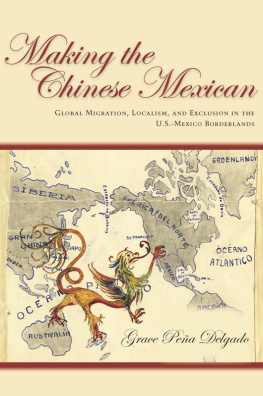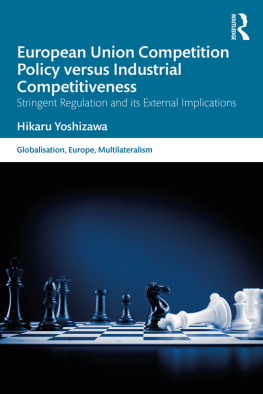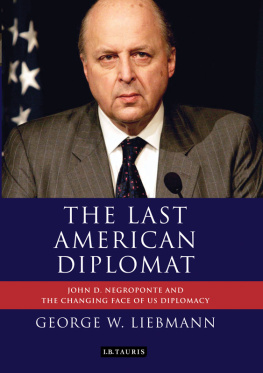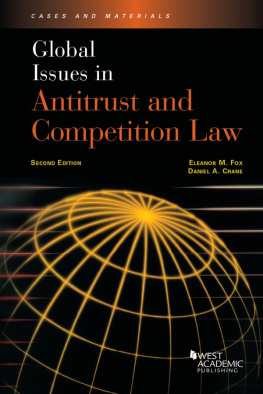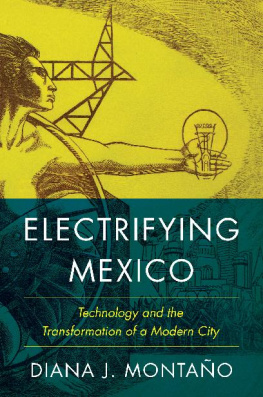| THE END OF NOSTALGIA |
| Mexico Confronts the Challenges of Global Competition |
| DIANA VILLIERS NEGROPONTE |
| editor |
BROOKINGS INSTITUTION PRESS
Washington, D.C.
ABOUT BROOKINGS
The Brookings Institution is a private nonprofit organization devoted to research, education, and publication on important issues of domestic and foreign policy. Its principal purpose is to bring the highest quality independent research and analysis to bear on current and emerging policy problems. Interpretations or conclusions in Brookings publications should be understood to be solely those of the authors.
Copyright 2013
THE BROOKINGS INSTITUTION
1775 Massachusetts Avenue, N.W., Washington, D. C. 20036
www.brookings.edu
All rights reserved. No part of this publication may be reproduced or transmitted in any form or by any means without permission in writing from the Brookings Institution Press.
Library of Congress Cataloging-in-Publication data
The end of nostalgia : Mexico confronts the challenges of global competition / Diana Villiers Negroponte, editor.
pages cm
Includes bibliographical references and index.
Summary: Explores how Mexico, in transition from one-party rule to liberal democracy, can develop the institutional and cultural underpinnings needed to meet the challenges of global economic competition. Examines in particular education, energy, domestic politics, regional trade and investment, public security, and relations with the United StatesProvided by publisher.
ISBN 978-0-8157-2494-0 (pbk. : alk. paper)
1. MexicoEconomic policy21st century. 2. MexicoEconomic conditions21st century. 3. MexicoPolitics and government21st century. 4. GlobalizationMexico.
I. Negroponte, Diana Villiers.
HC135.E553 2013
330.972dc23 2013013784
9 8 7 6 5 4 3 2 1
Printed on acid-free paper
Typeset in Minion
Composition by R. Lynn Rivenbark
Macon, Georgia
Printed by R. R. Donnelley
Harrisonburg, Virginia
M any individuals have supported this project since Arturo Franco brought the idea for it to Brookings in August 2011. While each of the authors bears responsibility for the contents of his or her chapter, we would like to thank Mauricio Crdenas for supporting the initial project and Rafael Rangel Sostmann and Kevin Casas-Zamora for guiding the project. Andrew Selee, Robert Pastor, Carla Hills, Karen Antebi, and Karina Ramirez shaped ideas on regional economic issues. Eunises Rosillo, Roberto Arnaud, and Jorge Zendejas provided essential help, and Roberto Valladares collaborated in an important way on the security chapter. We extend our thanks to Michael Walton, Irene Mia, Jos Carlos Rodriguez Pueblita, and Katherine M. Tweedie for early feedback on the political and economic chapters. The ITAM and the Asociacin Mexicana de Cultura supported the energy chapter, and IMCO, Fundacin Cinpolis, and Fundacin Televisa provided material and intellectual support to the education chapter. Willem G. Daniel, Carlos Aramayo, Alma Caballero, and Rashide Assad Atala provided invaluable research assistance, and Diana Caicedo played a key administrative role. Thanks also to Liberty Mutual, which supports the Latin America Initiative at Brookings. Finally, I am grateful to Eileen Hughes and Janet Walker, who asked perceptive questions and edited text as part of the strong team at the Brookings Institution Press.
| 1 | DIANA VILLIERS NEGROPONTE |
| The End of Nostalgia: Mexico Confronts the Challenges of a Global Era |
M exicans are proud of their noble ancestors: the most ancient Olmecs; Zapotec artists; Mayan traders; and Aztec warriors, who created a century-long empire. Later, Spanish conquerors, bringing with them both disease and Catholicism, melded with the indigenous populations to form a complex people whose adherence to a glorious past and whose fierce nationalism have become an integral part of the national discourse. Every school child absorbs tales of conquest, religion, and art derived from Mexico's ancient roots. The oversized national flag, emblazoned with an eagle devouring a serpent, reminds citizens that they are both a conquering and a conquered people.
In the nineteenth and twentieth centuries, the United States presented an existential threat. The Mexican-American War (184648) represented the loss of vast tracts of Pacific coast and inland deserts, and it served to remind Mexicans that the outside world was avaricious. Accordingly, for more than a hundred years, relations between Mexico and its northern neighbor were contentious. What Mexico needed was a defensive posture toward the emerging North American giant, whose interference was evident in President Woodrow Wilson's attack on Veracruz (1914) and General Pershing's raid deep into Mexico's heartland (1916). In response, relations with nonaligned countries were preferred precisely because those countries contested U.S. hegemony.
The Mexican Revolution (191020) was merciless in its savagery. After ten years of brutality, Mexico's leaders were determined to avoid war. Meantime, the Great Revolution provided the justification for an authoritarian government that co-opted the power of the army, peasants, business community, and emerging trade unions. The grand bargain between each constituent group and the Mexican presidency was constructed to provide a means for the respective interests of each group to reach up to the highest authority. However, it was also a means for the president to send his instructions down to the groups. Co-option rather than conflict became an essential feature of the Mexican political system, and patronage was ingrained throughout the nation. Powerful sponsors ensured access to employment, food for the family, and advancement in the political sphere. In exchange, few groups contested presidential mandates. Tacit acceptance of the patronage system formed between the government and the people, assuring citizens of security and moderate economic prosperity. For seventy-one years, the president of the dominant party, the PRI (Partido Revolucionario Institucional [Institutional Revolutionary Party]), appointed his successor and ensured that opposition was never strong enough to threaten the state.
The doubtful legitimacy of the 1988 presidential election began the unraveling of the old regime. The patronage system continued to ensure Mexico's century-long single-party rule, but signs of its demise began to appear. President Ernesto Zedillo recognized the need to dismember the one-party state and, like Mikhail Gorbachev in the Soviet Union, spurred the process of political democratization. In Mexico, this process was viewed as weakness because it resulted in victory for the opposition party, the center-right PAN (Partido Accin Nacional [National Action Party]). However, there appeared to be no stopping Mexico's historic march toward a multi-party system.
The PAN won the presidency in 2000 but struggled to negotiate legislation with a congress that was no longer compliant. The transition of a society from authoritarian rule to a government based on consensus building is necessarily slow, and the tendency to return to the old authoritarian ways remains strong. Political players found the freedom to contest the president through the media as well as in the halls of congress, and the 1998 decision to distribute federal resources to the thirty-one state governors, without demanding commensurate accountability, resulted in the diminution of the president's authority. State governors acquired new powers based on the transfer of federal funds, and a new power equilibrium ensuring greater rights for citizens spread throughout the nation. It also affected foreign relations.

